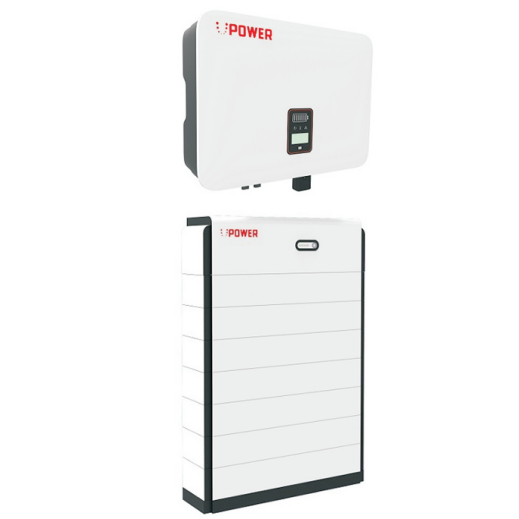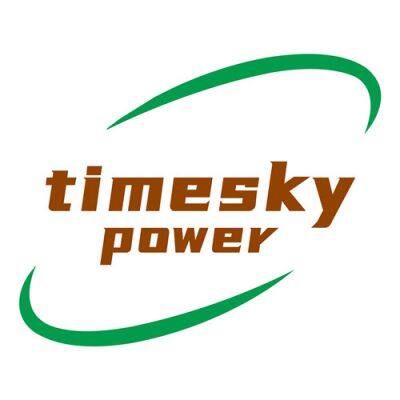Home > Company News > Up To July 2020, The UK Plans To Deploy More Than 13.5GW Of Battery Energy Storage Projects
Company News

From: ESCN
Keywordsï¼Battery Energy Storage System; Energy Storage Project; Energy Storage market
Energy Storage China Website News: With the major changes in the UK's energy storage planning and legislation in July this year, the market for grid-scale battery energy storage systems has been opened up.
InterGen will deploy a 320MW battery energy storage system in Essex, which will become the largest battery energy storage system in the history of the United Kingdom. British energy storage investors Gore Street and Gresham House have also followed to announced the acquisition and deployment of more energy storage projects.

Battery energy storage system and solar power generation developer Harmony Energy CEO Peter Kavanagh recently stated that changes in the UK's energy storage legislation will promote the deployment of more battery energy storage projects with installed capacity of more than 50MW.
He said, "We will see that the main interest of energy storage investors is to deploy battery energy storage projects with installed capacity of 50MW and above, because I think National Grid will also acquire and deploy larger-scale battery energy storage systems. This is An exciting development trend. But our energy storage deployment strategy will not change, and we will not immediately deploy a larger battery energy storage system, because we still believe that users need some smaller battery energy storage systems to improve the power system efficient."
According to the "British Battery Energy Storage Project Database Report" released by the energy industry media Solar Media, as of July this year, the UK plans to deploy more than 13.5GW of battery energy storage projects. Among them, the deployment of 1.3GW battery energy storage system is ready, and the 5.7GW battery energy storage system has obtained planning permission. However, the battery energy storage industry faces many challenges, especially the financing of grid-scale battery energy storage projects.
Kavanagh explained: "The biggest challenge currently is funding. We started to get involved in the battery energy storage field four years ago. At that time, the energy storage system for frequency modulation contract provided by the market could allow the deployed battery energy storage system to generate more revenue. But this market is quickly changing. It is saturated, so the quantity of deployed new battery energy storage systems is very small.
He pointed out that large investors usually focus on the contract revenue of renewable energy power generation facilities and obtain revenue through subsidies such as the Contract for Difference (CfD) program. But for battery energy storage systems, it is difficult to obtain such subsidies or income. Many investors would rather pay a high premium to invest in solar power and wind power facilities because this is a more predictable source of income. This is a difficult problem for the battery energy storage system, and the battery energy storage system technology has been well verified and well planned, for which investors need to realize this. "
But this situation has now changed, especially with the growth of National Grid ESO's frequency service, which is committed to balancing the increasing share of renewable energy in hybrid power generation, which has accelerated the development of the energy storage market and helped Consumers take good advantage of energy storage systems.
National Grid ESO launched the game-changing "dynamic containment" frequency response service this year earlier, which allows battery energy storage systems to provide sub-second response capabilities after failures.
Kavanagh said, âDue to the introduction of a new frequency mechanism, we have seen a substantial increase in investment. For example, dynamic containment services can drive the revenue growth of energy storage systems, in some cases three times the original transaction level, which provides frequency services. This is a very exciting development for us to expand into a broader market. We have indeed seen changes that drive the energy storage market and the balance mechanism."
He said that the field of battery energy storage systems still faces challenges, but its progress is undeniable. With the relaxation of regulations, stronger financial incentives from frequency response, and increasing demand for its stability, the UK will deploy more and more grid-scale battery energy storage systems.
Istructions:
1. The content of the article, copyright and the content of the quoted picture (or accompanying picture) are for reference only, if there is a copyright issue, contact us to delete it directly please. To proceed within 30 days please!
2. For copyright matters, please contact Email: leo.liu@ue-power.com
-
Testing and measurement techniques; Voltage fluctuation immunity test
-
Fixed capacitors for electromagnetic interference suppression and connection to the supply mains
-
Electromagnetic emission tests for measuring relays and protection equipment
-
Electrical disturbance tests - Radiated electromagnetic field immunity
-
Electromagnetic compatibility(EMC)
-
Heating under normal operating conditions IEC 60065:2014 ED8 7
-
CSA Certification for Electrical Products â Ensuring Safety Standards in Canada
-
UL 62368-1 Safety Testing for Audio, Video & IT Equipment â Fast Approval!
-
Achieving Wi-Fi Certification: Testing and Validating Compliance with Wi-Fi Alliance Standards
-
temperature rise test
-
degree of protection against mechanical impacts IEC 62262
-
ï¼ECï¼NO 1907/2006(Registrationï¼Evaluationï¼Authorisation and Restriction of Chemicals)
-
Insulation Resistance Test IEC 60598-1:2020
-
Dielectric Voltage-Withstand Tests (Hipot) IEC60950
-
Dustproof & Waterproof Test confirming to IEC 60529 standard
-
Aging Test including UV Aging Testing, Heat Aging Testing
-
Simulate extreme climatic conditions to validate quality and reliability for test products
-
Storage and transportation reliability test under the climate of high altitude and plateau region
-
Test specimens performance and reliability on electronic devices and components
-
glow wire test iec 60695-2
-
Master Bluetooth RF Compliance: Critical Testing for EN 300328, FCC Part 15 & SRRC Standards
-
EN 18031-3: For internet-connected radio devices that enable transfers of money, monetary value, or cryptocurrency
-
EN 18031-2: For devices handling personal, traffic, or location data,
-
EN 18031-1: For all internet-connected radio devices


